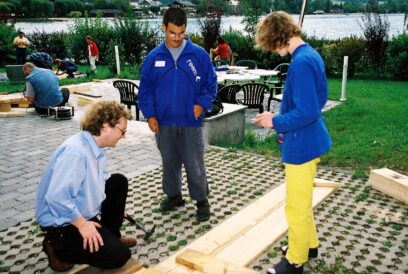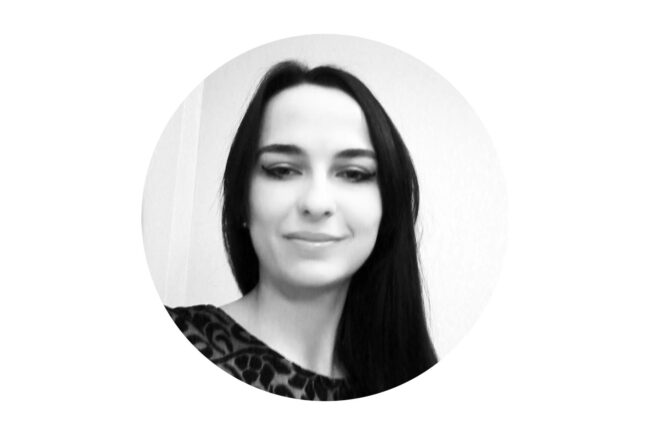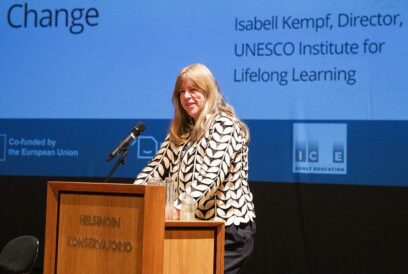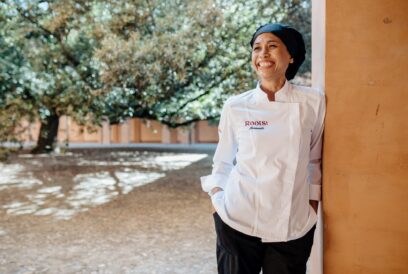

Doing an Erasmus MA during the pandemic taught Viktoriya Ivanenko that studying online cannot replace engaging with a new culture.
Having worked as an English teacher for 14 years in Tajikistan, I have always felt curious about how people learn.
In 2020, I was fortunate enough to win an Erasmus scholarship to do an MA in adult education. However, COVID-19 meant a lot of restrictions worldwide, so my first year of studying was fully online at home.
In my second year, the classes and placement that were part of the programme shifted to a face-to-face format at Tallinn University. I felt a very big difference in my learning outcomes: movement, locals and cultural experiences added to my progress and created a positive attitude to study and life.
THANKFUL AS I am for all the technological advancements, it is, however, clear to me that I prefer the face-to-face format because of its educational opportunities.
First of all, movement enriches learning process. At Tallinn University, we had an amazing field trip to Arvo Part Music Centre, located in a forest. Even now I remember the fresh smell of the trees. All human senses were involved, which made us fully engaged.
We moved through the architecture of Tallinn and understood the idea that learning can happen anywhere.
Not one of us was on the phone; on the contrary, we touched the notebooks of Arvo Part, a great composer with such inquisitiveness, and asked the guide many questions about his life and music.
For the course ‘Theories of Change’, our professor took us to a local library resembling a ship. The experience of learning outside formal, strictly regulated university settings was excellent therapy after the lockdown.
We moved through the architecture of Tallinn and understood the idea that learning can happen anywhere.
IN CONTRAST, when studying online, I only saw the screen of my computer and just moved from one room to another.
Secondly, learning from locals makes an immense contribution to the quality of studies.
I was fortunate to have a placement at Tallinn Folk School (Rahvaulikool). When I could not embroider a brooch with beads, a fellow-student helped me. It was so wonderful not to feel alone while doing a complicated task.
We also spent free time together and talked about our lives. Such informal learning was an important addition to my study experience, and I often felt inspired by my new friends and their efforts in our shared coursework.
When I studied online, I didn’t really have an opportunity to engage with new people closely. When people know you only online, they still have some reservations or doubts about your personality.
Through this placement, I realised how important music, dance and respect for history can be.
For example, our online placement, a collaboration with students from the University of Indiana, did not lead to any new friendships. We videorecorded the dialogue, wrote some forum posts, and that was it.
Thirdly, my experiences added to my wider understanding of cultural and societal context.
To illustrate, I experienced folk dancing at Tallinn Folk School. When you listen to Estonian folk music, it seems that you travel to another era. Through this placement, I realised how important music, dance and respect for history can be.
When I interviewed one of the teachers at the folk school in Tallinn, she told me that in Estonia having children is a full human right and supported financially by the government, whereas in the US it is more an individual responsibility.
I doubt that if I was only sitting in front of the computer, I would have fully understood the culture and spirit of other people.
I am especially thankful to all teachers and organisers of the Erasmus programme from different countries for sharing their knowledge with us, for treating us with tasty Estonian candies, tangerines, and Kringel, and for supporting us in every step of our learning journey.
Author






